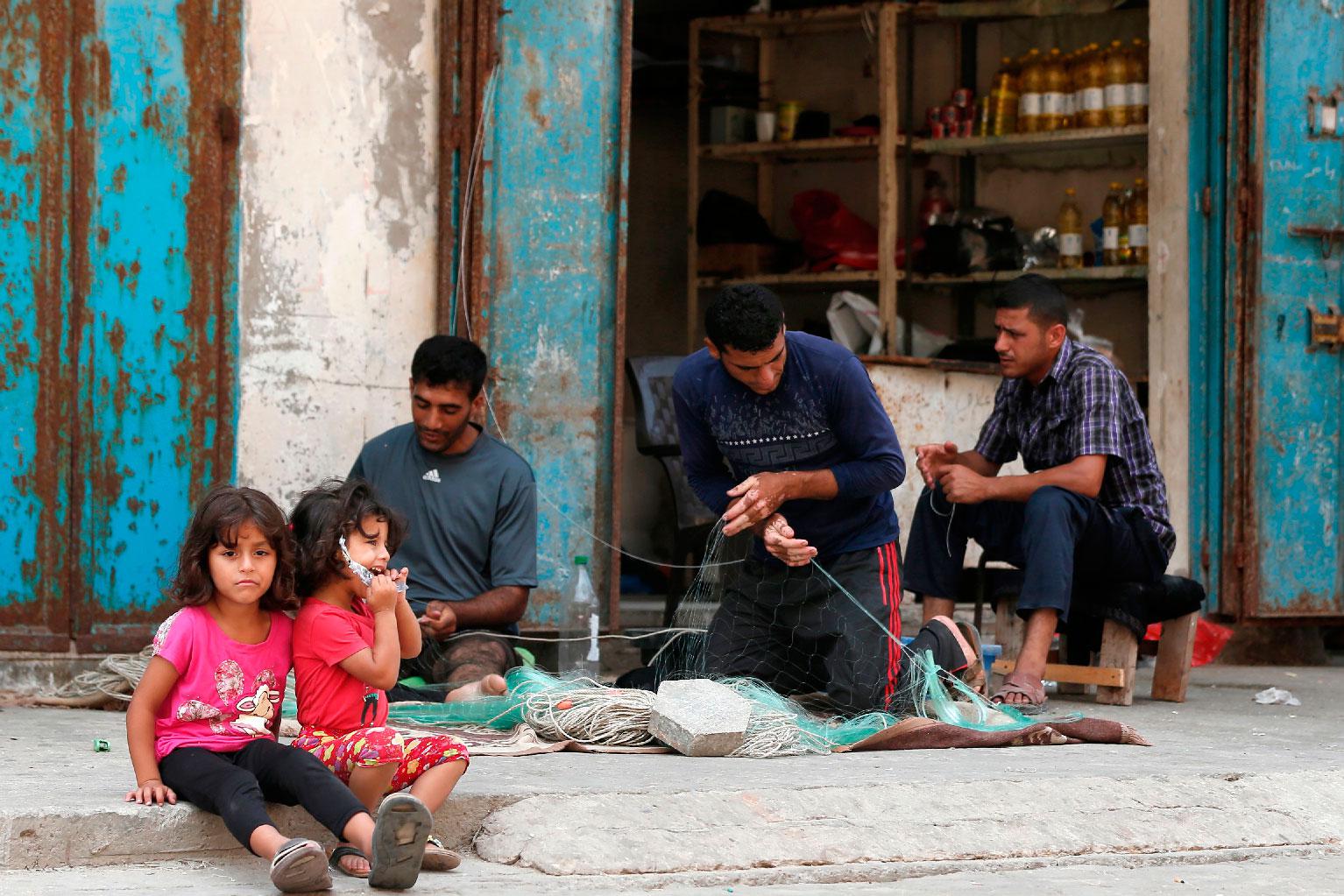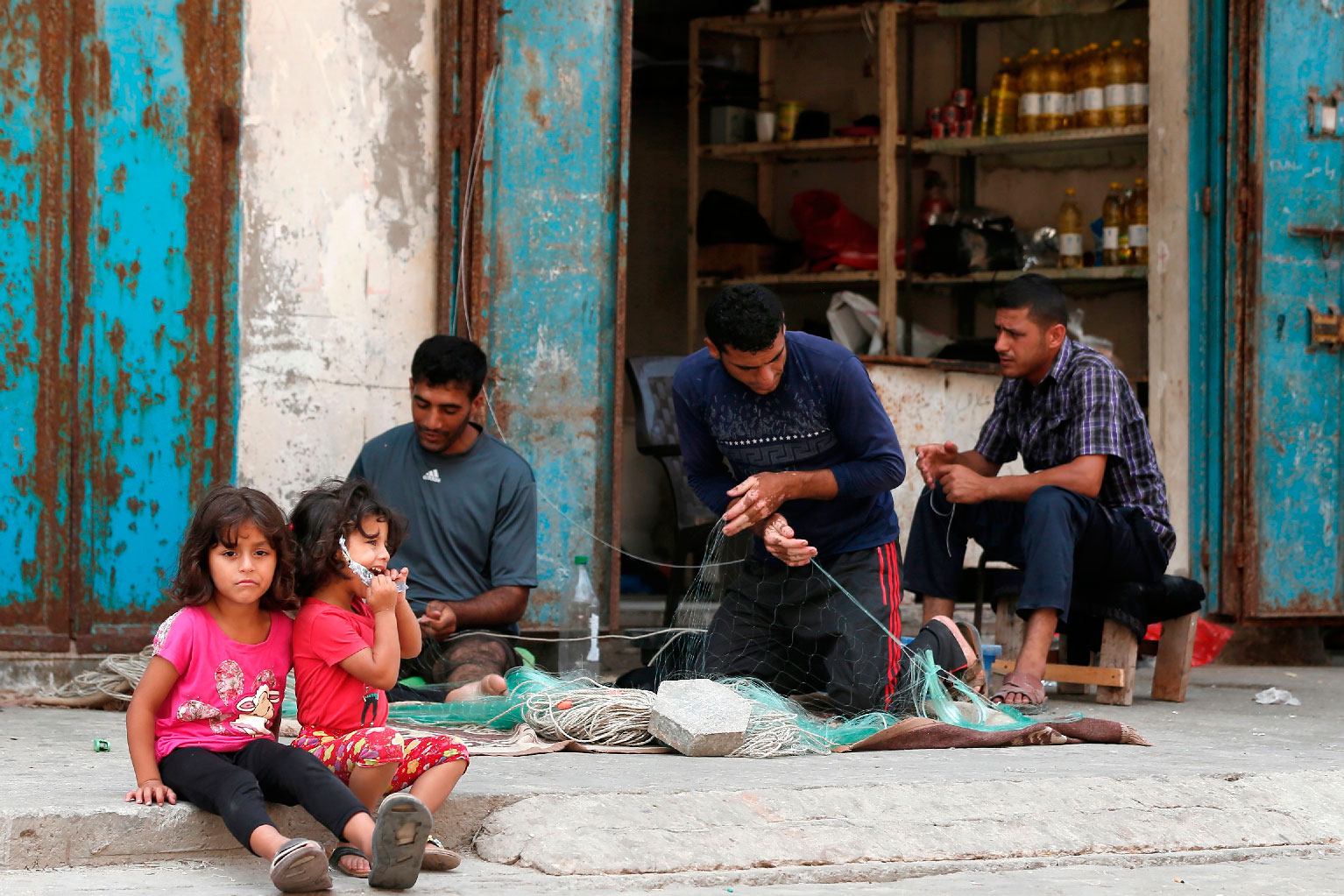Palestinian refugees react to Trump's aid cuts
GAZA CITY - Palestinians reacted angrily Saturday to a US decision to end all funding for the UN agency that assists three million needy refugees, seeing it as a new policy shift aimed at undermining their cause.
Washington, which until last year was by far the biggest contributor to the UN Relief and Works Agency for Palestine refugees, announced on Friday that it would no longer make any contributions to the "irredeemably flawed operation."
President Donald Trump's administration has backed Israel in accusing the nearly 70-year-old agency of perpetuating the Middle East conflict by maintaining the idea that many Palestinians are refugees with a right to return to homes in what is now Israel, something they both oppose.
But to Palestinians the right of return for the hundreds of thousands who fled or were expelled by Zionist colonisers from Europe, during the 1948 war that accompanied Israel's creation, is a central plank of their cause.
Its calling into question by Trump follows his December recognition of the disputed city of Jerusalem as Israel's capital and axing of more than $200 million in bilateral aid for Gaza and the West Bank.
The new policy on Jerusalem overturned decades of precedent and prompted the Palestinian leadership to break off relations with the White House.
'Cruel and irresponsible'
Senior Palestinian official Hanan Ashwrawi described the latest US move as "cruel and irresponsible".
"The Palestinian refugees are already the victims who have lost their homes, livelihoods and security as a result of the creation of the state of Israel," she said.
"Once again, they are being victimised by the US administration in support of Israel's decades-long military occupation and impunity."
UNRWA was already facing a financial crisis after Trump announced a $300 million funding freeze in January but now faces the threat of major closures to its network of schools and health centres.
In the impoverished Gaza Strip, where most children learn in UNRWA schools, the US decision has raised fears for their future education.
"If they stop the aid completely it would have a major effect on our children," said Abu Mohammed Huweila, 40, from the Jabalia camp in northern Gaza.
Huweila, whose nine children have all attended UNRWA, called the move "an unjust decision" that went against their right to education.
Nashat Abu El-Oun, a refugee and father of eight, said: "The situation is bad and it will become worse...People can hardly afford living these days and if they became unable to earn their living they will begin thinking of unlawful things."
'Just cause'
Another Gaza resident, Hisham Saqallah, 55, said the US move was "political blackmail" that would merely increase unrest.
"If they stop aid to schools, this means destroying the futures of a large number of students and throwing them into the street," he said.
"I do not think that it can eliminate our Palestinian cause. It is a just cause. If the aid is stopped, the Palestinian struggle will continue."
UNRWA spokesman Chris Gunness called the US decision "highly regrettable," saying the organisation would "try to make up the $217 million shortfall".
"If not some of the most marginalised and vulnerable people on the planet may well suffer," he said
"People are going to become more desperate and marginalised," he said, warning of "dramatic, widespread, profound and unpredictable" consequences.
Palestinian chief negotiator Saeb Erekat on Saturday accused Washington of implementing the agenda of "Israeli extremists who have done nothing but to destroy the prospect of peace between Palestinians and Israelis."
Speaking in Ramallah, he said: "The United States may have the right to say that we don't want to give taxpayers' money, but who gave the US the right to approve the stealing of my land, my future, my aspirations, my capital, my Aqsa Mosque, my Holy Sepulchre Church?"
In Jalazone refugee camp near Ramallah in the Israeli-occupied West Bank, Ayoub Abeidi, whose family once lived in what is now the city of Lod in Israel, said the decision was political.
"Trump wants to finish off UNRWA so he can terminate the right of refugees (to return)," said Abeidi, 53. "Our right to return exists and neither Trump nor anybody else can cancel it."
'New approaches'
Successive Israeli government have ruled out any right of return, fearing the country would lose its Jewish majority.
Israeli opposition lawmaker Yair Lapid said on Twitter: "Aside from providing cover to terror, UNRWA is responsible for the fact that the 750,000 people they registered originally (most of whom have since died) became 5.5 million fake refugees. UNRWA lost sight of its purpose long ago." Earlier this year Israeli Prime Minister Benjamin Netanyahu urged action against UNRWA.
"We already have great-great-grandchildren of refugees who are not refugees," he said in January. "I suggest a gradual conversion of all funds going to UNRWA to other agencies to deal with the question of refugees.
On Friday, before the US decision was confirmed, the head of the international UN refugee agency UNHCR, Filippo Grandi, was asked by reporters in Beirut if his agency could assume UNRWA's role. "The Palestinian refugees in the region are the responsibility of UNRWA," he said, making no further comment.
Jordan, which is one of just two Arab countries to have signed a peace treaty with Israel, already announced plans to organise an emergency fund-raising conference on the sidelines of the UN General Assembly in New York next month.
Foreign Minister Ayman Safadi said the September 27 event aimed to secure alternative funding and "reaffirm that UNRWA is an organisation created by the UN General Assembly, with a clear and particular role, and this role must continue".
State Department spokeswoman Heather Nauert said the US would "intensify dialogue with the United Nations, host governments and international stakeholders about new models and new approaches" for assisting needy Palestinians.
But Hugh Lovatt, Israel Palestine analyst at the European Council for Foreign Relations, said Washington would find scant support for its push for an alternative aid conduit.
He said it was an attempt to "unilaterally take the Palestinian right of return off the table".
"But US actions are misguided, dangerous, and won't work," he said, since "neither Lebanon or Jordan can be expected to play along."
And even if the US succeeds in eliminating UNRWA and changing the definition of the world's 5.3 million registered Palestinian refugees, "Palestinian refugees will remain, and will keep demanding their right of return."



